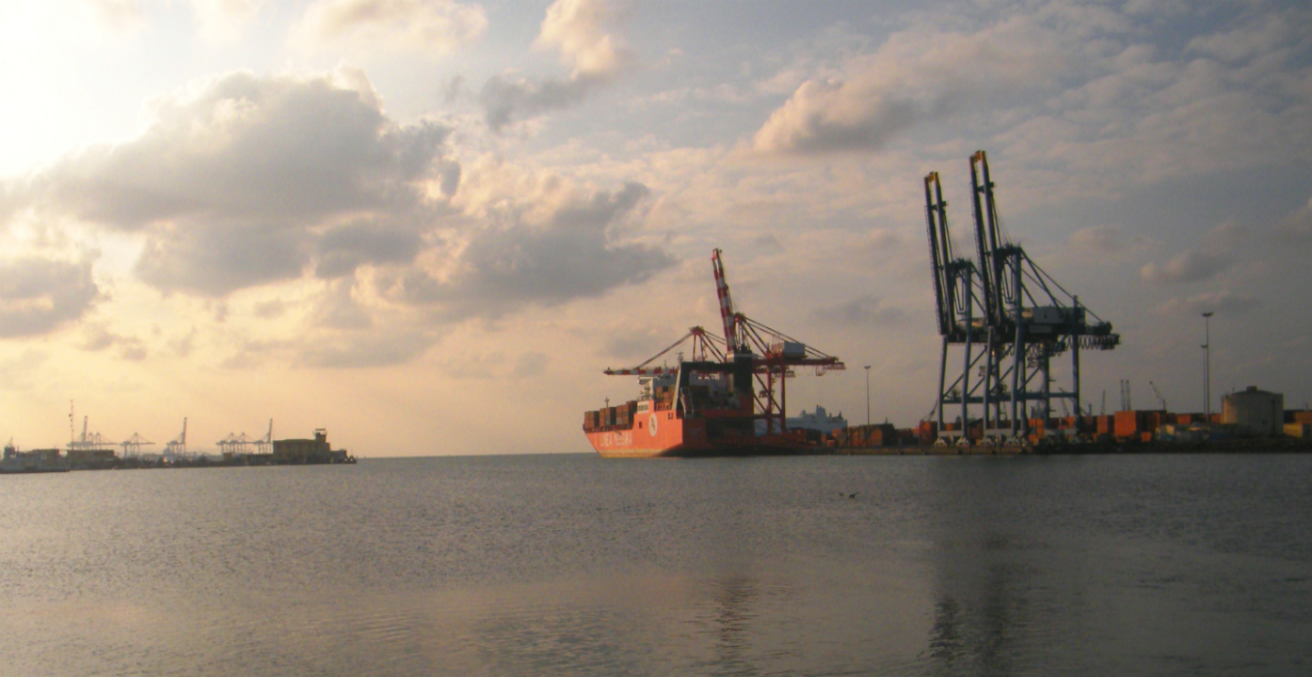Is Peace in the Horn of Africa Bad for Djibouti?

While the normalisation of the Ethiopia-Eritrea relationship may increase competition, Djibouti will remain an important international trading hub in the region.
Located in the strategic Horn of Africa region, Djibouti has successfully exploited its coastline by offering both port access and military bases to foreign countries. Eritrea achieved independence from Ethiopia in 1993 after a thirty-year struggle. The resolution of a border war in 2000 has since then left the two countries in a state of “no war, no peace.” Ethiopia lost access to Eritrean ports and has since been landlocked and dependent upon other neighbours for access to international markets. Djibouti benefited from the Ethiopian-Eritrean hostility and particularly Eritrea’s international isolation, by acting as Ethiopia’s most important seaport.
On 9 July, the reform-minded Ethiopian Prime Minister, Abiy Ahmed, and Eritrean President, Isaias Afwerki, signed a “Joint Declaration of Peace and Friendship.” The effect was to restore diplomatic relations, re-open embassies in Addis Ababa and Asmara and resume flights between the two countries. This landmark peace deal marks an official end to hostilities, with both leaders declaring that the countries will resume their trade, economic and diplomatic ties.
While ports exist in Sudan, Somaliland and Eritrea, Djibouti’s political stability and investor-friendly atmosphere have made it a regional hub for deep-sea shipping. Djibouti has enjoyed a near-monopoly on moving goods to and from landlocked Ethiopia, with 95 per cent of Ethiopian trade flowing through its ports. Profits from Ethiopia’s use of the ports are estimated at USD 1.5 billion annually and are a key source of government revenue for Djibouti.
Diversifying its port access has been a major strategic objective for Ethiopia. It views the peace agreement as an opportunity to re-open critical roads leading to Eritrea’s Red Sea ports. Access to the Eritrean ports of Assab and Massawa, as well as the possibility of joint seaport development, presents a valuable opportunity for Ethiopia to boost exports and reduce its dependency on Djiboutian ports.
Djibouti is home to the largest American military outpost in Africa, China’s first overseas military base and French, Japanese, Italian and Saudi Arabian military bases. These bases are a significant source of security and income. Djibouti has, however, been criticised for extracting costly rents from as many foreign militaries as possible. It has also reportedly upset the United States, by allowing China to develop a military base in very close proximity to its own. The re-emergence of Eritrea provides foreign militaries with the opportunity to diversify their security partnerships.
Increased interest in the Horn of Africa by the United Arab Emirates (UAE) presents another challenge for Djibouti. The UAE has acquired rights to a naval base in Eritrea, as well as military bases and commercial ports in the semi-autonomous regions of Somaliland and Puntland in Somalia. The UAE has continually advocated the development of more ports in Africa, particularly in the Horn region. Relations between Djibouti and the UAE have deteriorated since February, when the Djiboutian Government cancelled the contract of the Emirati firm Dubai Ports World (DP World) to operate Djibouti’s main container shipping terminal. That decision echoes China’s rejection of the verdict of the International Court of Arbitration at The Hague, in relation to Beijing’s territorial claims in the South China Sea. The Djiboutian Government has announced that it ‘does not recognise’ the decision of the London Court of International Arbitration, which ruled that the Djiboutian Government acted illegitimately when seizing control of DP World’s port concession. Djibouti’s rejection of that ruling has raised questions about its reliability as an investment destination.
According to some analysts, the UAE assisted in brokering the peace agreement between Ethiopia and Eritrea. The UAE’s growing regional influence could result in it taking a leading role in underwriting the expansion of competing port facilities in Eritrea.
Shipping and land lease profits directly supplement President Ismaïl Omar Guelleh’s tight political control over Djibouti. Speculation that Guelleh is at risk of losing these key sources of income may undermine his leadership and increase his vulnerability to grievances about government corruption and repression.
Eritrea and Ethiopia have a chequered history and there is a danger that unresolved tensions will flare up again between the two countries. Another factor constraining Ethiopia from shifting away from Djibouti is its imperative to pay back the nearly USD 3 billion in Chinese loans borrowed for the newly opened Addis Ababa-Djibouti railway.
While the normalisation of the Ethiopia-Eritrea relationship may increase competition, by providing Ethiopia and foreign militaries with another outlet to the Red Sea, it is unlikely that Ethiopia will cease using Djiboutian ports altogether. The development of valuable strategic infrastructure around the Doraleh Container Terminal is likely to ensure that Djibouti’s ports remain central to Ethiopia’s maritime trade and will continue to act as an important strategic international trading hub in the region.
Katarina Welborn is a research assistant within the Indian Ocean Research Programme at Future Directions International.
This article was originally published by Future Directions International here. It is republished with permission.





